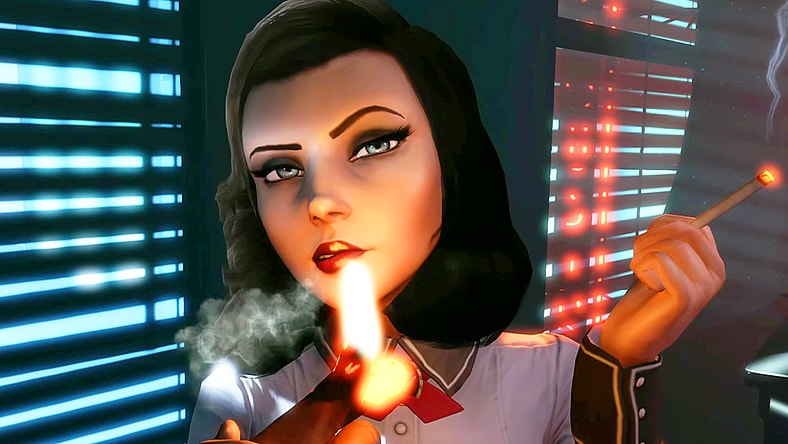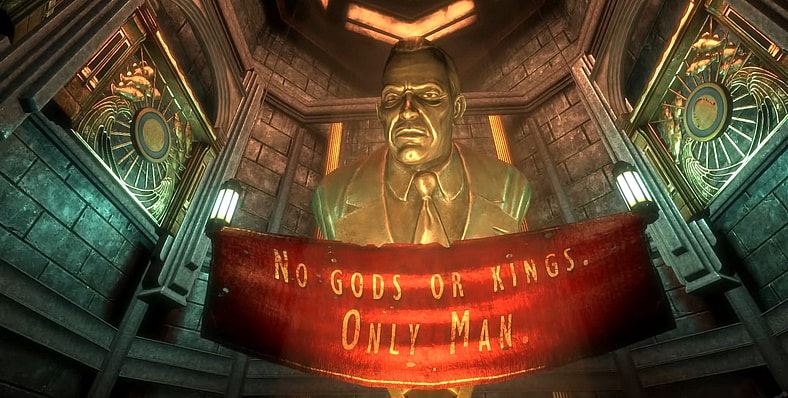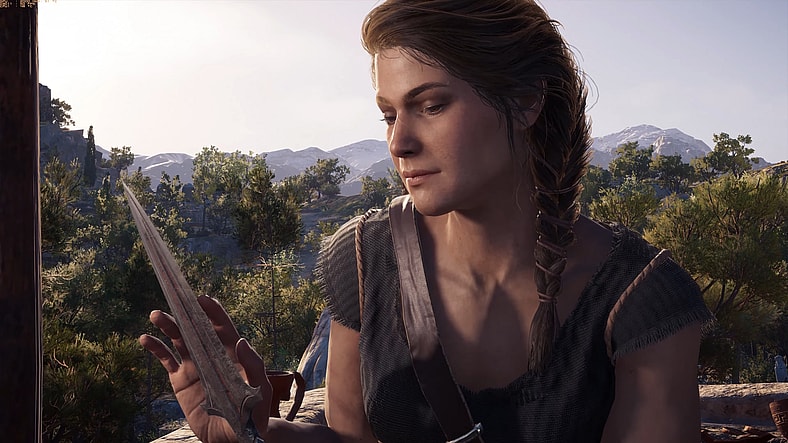‘BioShock’ And ‘BioShock Infinite’ Director Ken Levine Says Games Getting “Bigger” Has Led To Creative Stagnation: “You Stop Taking Risks And People Just Tune It Out”

In the opinion of BioShock franchise creator Ken Levine, the video game studios’ continued obsession with making their works “bigger and bigger” has resulted in an industry-wide dearth of creativity, particularly as expansive budgets have led to the prioritization of trend chasing over innovation.

Levine, who in the decade since directing BioShock Infinite‘s Burial At Sea DLC has focused his creative attentions on developing his upcoming sci-fi FPS Judas, offered his perspective on the challenges facing triple-A game development today while giving a rare interview to Gamesindustry.biz Editor-in-Chief James Batchelor in December 2024.
Asked by Batchelor as to “What restrictions or challenges do the time pressures of development put on storytelling, and advancing how stories are told in games?”, the System Shock 2 designer lamented, “I think one of the problems we have in this industry right now is that games have gotten bigger and bigger and the graphical capacity has gone up and up.”
“Just creating a door now versus creating a door ten years ago just takes a lot more time, because you have normal maps and traders and higher polygons and physics and all this other stuff to contend with,” he explained. “Everything’s getting more expensive, especially in the big AAA space because they’re spending the most money. And when you’re spending all this money, naturally you have people concerned about the commercial viability of it. But the problem with AAA is if you don’t innovate, especially in games, you start losing people because they’ve seen it before. And so we have a potentially an over reliance, in some cases, on franchises.”
“It wasn’t easy to step away from BioShock,” he then admitted. “I never thought I’d have an established franchise. I tried multiple times and I’ve only made a couple of games that didn’t have a sequel, but certainly I never really had a successful franchise before BioShock. But I saw an opportunity to create a new IP and take on some risk. I’m very fortunate that Take-Two put their faith in me and not everybody has the wherewithal to do that – especially in the last few years, which have been very challenging.”

“Take-Two has had success and I’m very grateful to everybody else who’s done well – like, obviously, the Rockstar guys, who bring in a lot of revenue and who allow this kind of experimentation – because ideally you want to be putting bets on people taking risks in any sort of endeavor,” he further opined. “You also want to have people not taking as much risk – you need to sort of diversify. But AAA has become very difficult to take risks and mostly because it’s so expensive. And so I’m incredibly fortunate to be able to have the faith from the company to take risks and spend the time I need to make this successful.”
Drawing his thoughts on the topic to a close, Levine acknowledged how it is “hard to do new things” before ultimately reasoning, “Quite often if you take those risks, sometimes you’re going to fall flat on your face. And the more expensive it gets the trickier it gets. But I do think that without that – look at the Marvel Cinematic Universe – you stop taking risks and people just tune it out.”
“Nothing is blessed by God to be successful,” he concluded. “You’ve gotta give some people something that excites them and that gets harder every year. But you know what? That’s the job.”

RELATED OPINION: After Stock Plunge Scare, Ubisoft Needs A Miracle – And ‘Assassin’s Creed: Shadows’ Is No Miracle
Far from just random ranting, Levine’s observations are supported by the many, many multi-million dollar budget flops that have released in recent years.
For instance, Warner Bros.’ Suicide Squad: Kill the Justice League reportedly lost the company over $200 million, while Sony’s live-service shooter Concord was shut down mere weeks after its launch, against a $400 million budget.
BioWare’s troubled development of Dragon Age: The Veilguard and its damage-control review marketing strategy, and the failure of Star Wars: Outlaws, add to the ever-expanding list of examples where ambition failed to meet market expectations.

And in terms of creative stagnation, those rare, successful Triple-A titles are often derivative of a previously successful model or formula.
The Assassin’s Creed franchise didn’t build its popularity on being an open-world adventure with RPG elements, but after this design direction helped Black Flag to be a smash hit, Ubisoft has spent the last few entries rehashing the same formula over and over again hoping to chase that success, in doing so abandoning its core stealth gameplay and replacing it with repetitive fetch quests.

Additionally, in light of all the praise given to FromSoftware’s Demon‘s/Dark Souls franchise (as well as its spiritual sequel Elden Ring), more and more developers have attempted to put their own spin on the Souls-like formula, including Lies of P, Star Wars: Jedi Survivor, and Black Myth: Wukong.
Admittedly, these games aren’t particularly bad and none of them received bad reviews, they offer very little substance of their own.
Should these trends continue, they will result in fewer and fewer people engaging with newer titles, in doing so delivering a decisive financial blow to the already shaky industry.

But far from merely offering commentary, Levine is doing his part to change the current money-burning, snore-inducing state of the triple-A scene with the aforementioned Judas.
The first game from his fledgling Ghost Story Games studio, itself a rebrand of his former Irrational Games endeavor, Judas, as the director assured Batchelor, will see him and his team push their storytelling and gameplay ambitions to new bounds by presenting a game “heavily based upon recognition of player action and response to player action.”
“Even just characters’ observing a long range of player action and commenting on it,” he explained. “‘Hey, you saw this and you did that and then you did this and that was interesting because that caused that’ – we’re doing that kinda stuff right now.’ And it’s really just observing the players and then writing the types of lines that could react to various types of things. It’s a huge amount of work because you have to think of all the things a player can do and then write in-character responses for different characters to those actions in a way that feels organic.”

